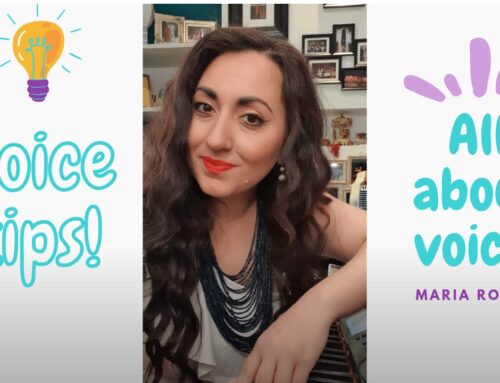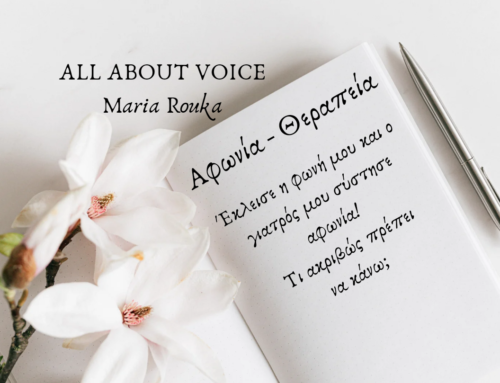Here’s Why You Hate the Sound of Your Own Voice
The first time you ever hear your voice on a recording can be a traumatizing experience. In our heads we might have the cool rasp of Scarlett Johansson, but in real life we sound like high-pitched, nasally caricatures of our true selves. For that reason, it’s no surprise that most people hate the sound of their voice.

But like most things in life, the reason for that is a combination of science and psychology. Similar to how we prefer how we look in mirrors than in pictures, our brains love playing tricks on us. But sorry, that “nasally” voice you hear in your Snapchat videos is all you. Below, a few reasons why:
You hear your own voice differently from others.
We hear our voices all day, from our inner thoughts to all the times we’ve gabbed with friends and co-workers. So if anyone knows what your voice sounds like, you’d think it’d be you, right? Wrong. You hear your own voice differently due to the way sound travels out your mouth and back into your ears.
When your friends are listening to you, your voice travels though the air and hits their external ear drums, sending vibrations into the inner ear. However, when you’re hearing your own voice, the sound is coming from inside your body, which means it’s filtered through your ears differently. These inner vibrations transfer in two ways, both externally, from your mouth, and internally, from the bones in your head and neck. The combination of these two pathways is what creates the unique voice you hear in your head that your friends, who only hear the airborne version of your voice, can’t hear.
“When we talk, it’s like everyone hears the sound through speakers, but we’re hearing it through a cave complex inside our own heads,” Martin Birchall, professor of laryngology at University College London, told Time. “The sound is going around our sinuses, all the empty spaces in our heads and the middle part of our ears, which changes the way we hear sounds compared to what other people hear.”

So, in other words, the bones in your face make it impossible to accurately hear your true voice.
Your brain tricks you into thinking your voice is lower than it is.

One of the biggest complaints people have about the sound of their voice is that it’s higher than what they’re used to. Those stupid bones in our faces? Well, they’re to blame for making us all believe we sound like Angelina Jolie when really we sound like Fran Drescher. Those bones create a deeper, lower-frequency vibration that gives our voices a lower, fuller quality, which is also why you might think your real voice sounds “thin” or “whiny.” Apparently, the inside of our heads just has great acoustics.
You don’t recognize your own voice.

So we talked about the scientific reasons for why your voice sounds different in recordings, but when it comes to explaining why we vehemently hate our real voices, that gets more psychological. Due to good ol’ egotism, we tend to favor things that represent us and what we’re more familiar with. Psychologists call this the “mere-exposure” effect, and people subconsciously do this behavior all the time. Because we’re most comfortable and familiar with how we sound inside our heads, we find our true voices to be different and foreign. According to a study, only 38 percent of people recognized their own voices when played a recording of themselves talking. In other words, people don’t like when reality contradicts their imagined versions of themselves.

“Imagine you didn’t have a mirror for six months and you had a perception of what you looked like,” Dr. Yale Cohen, director of the Hearing Sciences Center at the University of Pennsylvania’s Perelman School of Medicine, told Live Science. “Meanwhile, you start eating lots of food and you gain lots of weight. If you [suddenly looked in a mirror], you’d be shocked.”
You don’t think your true voice represents the “real” you.
In addition to simply not being used to our real voices, on a deeper level, others might hate their voice because they think it reveals things about their character they don’t like. Going back to that list of things people hate about their voice, one of the more common ones is that people think their real voice sounds less confident than what they’re used to. This phenomenon called the “voice-confrontation experience” was explored in a 1966 study.

“The disruption and defensive experience are a response to a sudden confrontation with expressive qualities in the voice which the subject had not intended to express and which, until that moment, [s]he was not aware [s]he had expressed,” the study quoted.
If you’re scratching your head, Marc Pell, a neuroscientist at McGill University, explained it more thoroughly to The Guardian.
“When we hear our isolated voice which is disembodied from the rest of our behavior, we may go through the automatic process of evaluating our own voice in the way we routinely do with other people’s voices,” he said. “I think we then compare our own impressions of the voice to how other people must evaluate us socially, leading many people to be upset or dissatisfied with the way they sound because the impressions formed do not fit with social traits they wish to project.”
So, in other words, if you think you sound like a confident James Bond character in your head but actually sound like PeeWee Herman, you’re going to feel obviously pretty crappy about it.
You can train yourself to sound better (or at least hate your voice less).
But not all is lost! If you want to find your own voice , there are ways you can make slight alterations to your voice. There are countless tips about breathing and speech articulation that teach you the techniques you’ll need to know to modify your voice and how to even make it deeper. But honestly, the best way to start liking your voice is to start to find your unique voice by studying it. A lot of people who go into podcasting or radio hosting start getting used to their voices and even start liking it.
FIND YOUR UNIQUE VOICE
BREATHE • SPEAK • SING
www.allaboutvoice.gr
#allaboutvoice #voice #lovemyvoice #hatemysound #findyouruniquevoice #mariarouka





https://waterfallmagazine.com
This is the perfect site for everyone who hopes to understand this topic.
You know so much its almost hard to argue with you (not that I personally will need
to…HaHa). You certainly put a new spin on a subject which has been written about for decades.
Great stuff, just great!
Thank you waterfallmagazine! I will continue with the same passion. Stay tuned!